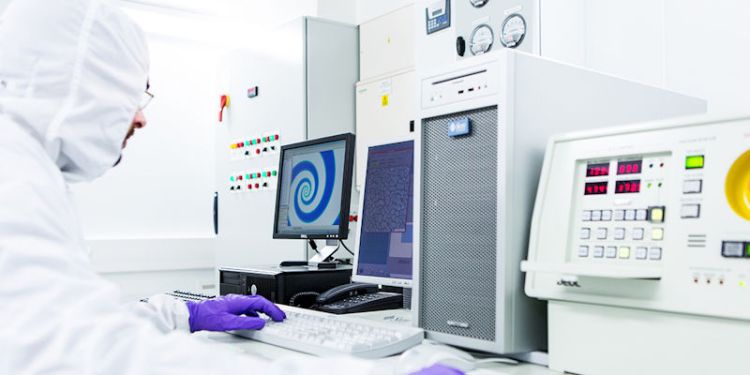EPSRC NetworkPlus in Terahertz (THz) Systems
Overview

Terahertz (THz) science and technology have undergone a transformative evolution over the past two decades, growing into a dynamic field with wide-ranging applications from fundamental research to industrial deployment. With global market estimates of $600–900 million (£480–720 million) in 2023, THz technologies are now poised to have a significant economic and societal impact.
Building on this momentum, the EPSRC NetworkPlus in THz Systems now acts as the UK’s central hub for collaboration in THz science, devices, systems, and applications, linking academic researchers, industry, and international partners. Management of the Network is by a consortium drawn from the Universities of Leeds, Oxford, Cambridge, Warwick, and Glasgow, led by Professor John Cunningham.
Our experience
From 2014 to 2018, a UK-wide network (Teranet) funded by EPSRC aimed to unify the fragmented terahertz (THz) research landscape. This initiative successfully connected diverse communities through a series of consortia meetings and produced high-impact outputs, including the 2017 and 2023 International THz Science and Technology Roadmaps, both published in the Journal of Physics D.
The new NetworkPlus builds on this foundation with a systems-level approach to collaboration, fostering deeper interdisciplinary partnerships and strategic knowledge exchange across the UK and beyond.
Our mission
We aim to:
- Strengthen and expand the UK’s global leadership in THz research and innovation.
- Foster cross-sector collaboration and accelerate the translation of research into real-world applications.
- Develop future leaders in the field and embed equity, diversity, and inclusion (EDI) throughout our operations.
Our objectives
We will deliver our mission through nine key objectives:
1) International collaboration
Forge and expand partnerships between the UK and international THz communities, leveraging opportunities such as the DFG INTEREST programme and UKRI lead agency agreements.
2) Thematic Special Interest Groups (SIGs)
Launch six inclusive SIGs representing key areas of THz research to promote focused collaboration, technical innovation, and knowledge sharing.
3) Showcasing excellence
Highlight cutting-edge UK research at annual national meetings and events, amplifying outputs from the NetworkPlus and EPSRC-funded THz projects.
4) Flexible funding scheme
Support mobility, seed funding, pilot projects, and feasibility studies that stimulate innovative collaboration across disciplines and institutions.
5) Industrial engagement
Host sector-specific events, training, and showcases to promote two-way engagement between researchers and industry.
6) Career development
Empower early and mid-career academics through targeted leadership, training, and international collaboration programmes.
7) Ten-year roadmap
Co-create a comprehensive, community-led roadmap identifying future research opportunities, innovation pathways, and policy recommendations.
8) Equity, diversity, and inclusion (EDI)
Integrate EDI principles in all aspects of governance and activity, supported by ringfenced Access and Outreach funds.
9) Advocacy and representation
Provide a unified voice for the UK THz community, promoting its needs and achievements to funders, stakeholders, and policymakers.
We are currently establishing a website that will allow interested individuals to join the NetworkPlus formally. In the meantime, if you would like to be kept up to date on its progress and future meetings, please email terahertz@leeds.ac.uk to be added to our mailing list.

